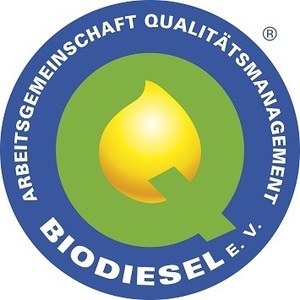Registration open until Feb. 28 for AGQM round robin tests

February 11, 2020
BY AGQM
Registration for Germany’s biodiesel quality management association (AGQM) round robin tests is now open. Round robin tests are an important tool for laboratories to check and improve their own measurement performance and to identify and avoid possible handling, device or systematic errors. The participation in the round robin tests can be used for laboratory accreditation.
For the first time, all three round robin tests for fatty acid methyl esters (FAME, or biodiesel), vegetable and used cooking oils and pharmaceutical glycerol will be offered at the same time by AGQM. The FAME round robin test is divided into two parts. FAME Part 1 queries common parameters of the biodiesel standard EN 14214 (those listed in the German 36th BImSchV). FAME Part 2 contains additional parameters such as the methanol content and the cetane number. The vegetable and used cooking oils round robin test addresses the analysis of oils (DIN 51623 and EN 14214), which is used, for example, for incoming goods inspection.
Technical glycerol is a byproduct of the biodiesel production process, which can be refined to pharmaceutical glycerol. The specifications of the European pharmacopoeia are used for the examination and quality control of pharmaceutical glycerol. These and other selected standard methods are the basis for the pharmaceutical glycerol round robin test.
Advertisement
Advertisement
Registration for the round robin tests is open until Feb. 28 here. More information can be found on AGQM’s website or requested via email.
Advertisement
Advertisement
Related Stories
Clean Fuels Alliance America on June 10 announced the launch of the newly redesigned BQ-9000 website, delivering a streamlined and user-friendly experience that better showcases the value of biodiesel quality assurance.
Global Biofuels Alliance launches at G20 Summit
President Joe Biden on Sept. 9 joined leaders of India, Argentina, Brazil, Italy, Mauritius and the United Arab Emirates to launch the Global Biofuels Alliance. The launch took place on the sidelines of the G20 Summit in New Delhi.
Neste is disputing a report filed with the USDA that suggests the company may have received fraudulent used cooking oil (UCO) volumes at its renewable products refinery in Singapore, specifically virgin palm oil from Indonesia.
Members of the European Parliament (MEPs) on Sept. 13 approved a new law that ramps up requirements for sustainable aviation fuel (SAF) within the European Union but sets limits on what types of feedstocks that fuel can be made from.
Clean Fuels outlook predicts growing supplies of used cooking oil
Global used cooking oil (UCO) supplies are anticipated to rise from 3.7 billion gallons in 2022 to between 5 billion and 10 billion gallons by 2030, according to a report released by Clean Fuels Alliance America on Sept. 13.
Upcoming Events










